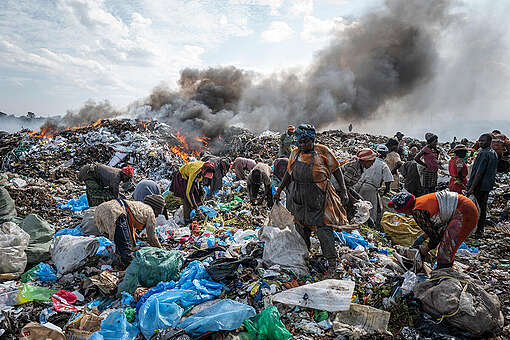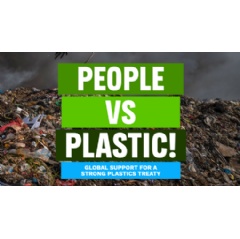A recent report by Greenpeace International sheds light on the widespread support for reducing plastic production, as revealed by a survey conducted across 19 countries.
The findings come just ahead of the fourth Intergovernmental Negotiating Committee (INC4) meeting for a Global Plastics Treaty, scheduled for Ottawa, Canada this month. The survey underscores strong public backing for initiatives aimed at curbing single-use plastics and promoting reusable alternatives.
Key revelations from the survey include:
- 82% of respondents endorse cutting plastic production to combat plastic pollution.
- 80% advocate for safeguarding biodiversity and addressing climate concerns by reducing plastics production.
- 90% support transitioning from single-use plastic packaging to reusable and refillable alternatives.
- 75% favor a ban on single-use plastic packaging.
- 80% express concerns about the health impacts of plastic, with 84% of parents particularly worried about its effects on their children.
Graham Forbes, Greenpeace’s Head of Delegation to the Global Plastics Treaty negotiations and Global Plastics Campaign Lead for Greenpeace USA, emphasized the resounding public support reflected in the survey results. He urged world leaders to heed this message and deliver a robust treaty that aligns with the public’s desires, urging them to resist the influence of the fossil fuel industry.

The survey indicates consistent support for ambitious action on plastics across all surveyed countries, particularly in regions with high levels of plastic pollution. Notably, 60% of respondents support excluding lobbyists from fossil fuel and chemical industries from treaty negotiations.
However, there exists a notable gap between public opinion and government stances on the treaty in some countries. For instance, while public support for reducing plastic production is overwhelming in China (92%), Brazil (89%), and India (86%), their respective governments oppose such measures.
Greenpeace is calling for a Global Plastics Treaty that reduces total plastic production by at least 75% by 2040 to mitigate biodiversity loss and limit global temperature rise. With over 99% of plastic derived from fossil fuels, unchecked production poses a significant threat to climate stability.
With only two negotiation meetings remaining, there’s a sense of urgency to reach a meaningful agreement. Forbes emphasized the importance of seizing this opportunity to address the global plastics crisis without allowing the fossil fuel industry to dictate terms.
The upcoming INC4 conference in Ottawa will bring together government ministers from 173 countries to negotiate a legally binding treaty. The previous INC3 meeting in Nairobi, Kenya, ended inconclusively due to disagreements among participating countries, resulting in a lack of progress towards drafting the treaty.


